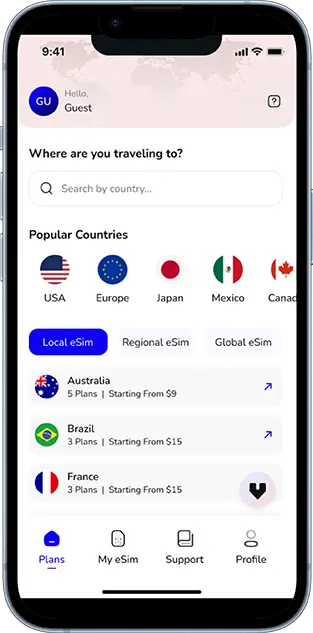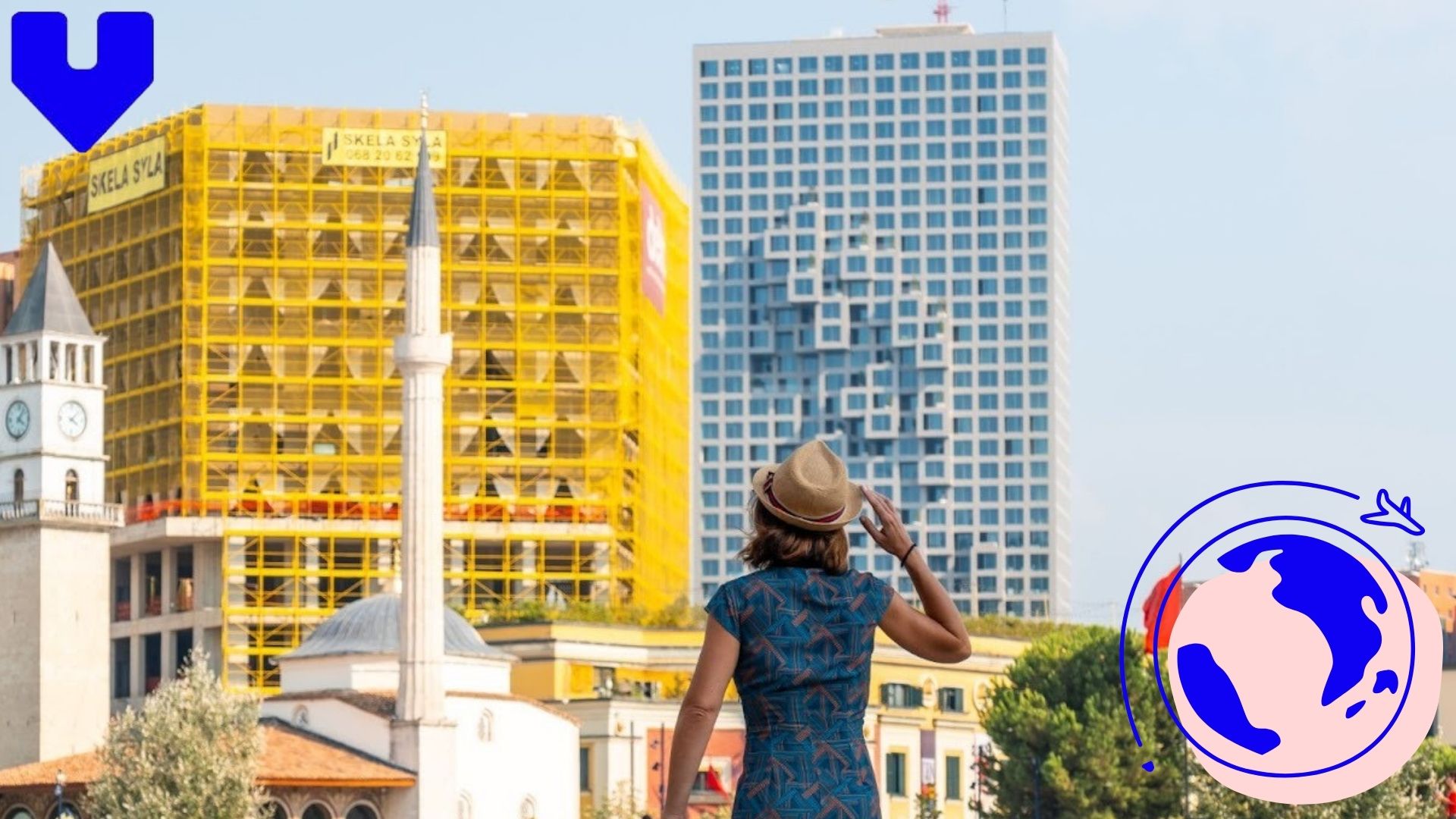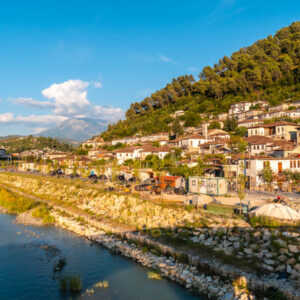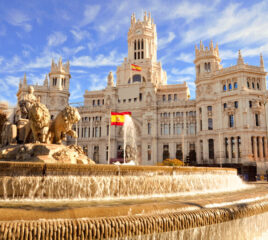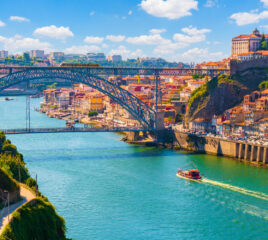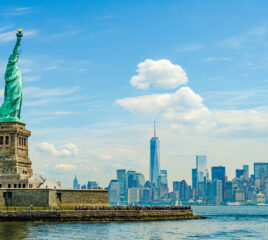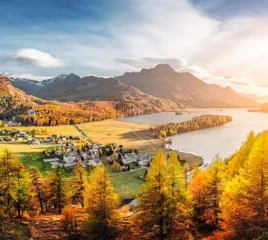Note that iPhone devices from Mainland China aren’t eSIM compatible. Also iPhone devices from Hong Kong and Macao aren’t compatible (except for iPhone 13 Mini, iPhone 12 Mini, iPhone SE 2020 and iPhone XS)
Albania has rapidly evolved from a little-known Balkan nation into one of Europe’s most exciting travel destinations. Framed by Greece and Montenegro, it offers an irresistible mix of turquoise coastlines, majestic mountains, and authentic local culture. With its balance of affordability and natural beauty, Albania appeals to travelers seeking fresh adventures away from crowded Mediterranean hotspots.
This travel guide explores the country’s highlights – from the stunning Albanian Riviera and hidden beaches to alpine trails, heritage towns, and village traditions. Whether you’re drawn to history, hiking, or coastal escapes, Albania promises a journey that’s diverse, welcoming, and refreshingly untamed.
Albania’s Coastal Wonders: Beaches and Riviera Bliss
Albania’s 280-mile coastline remains refreshingly unspoiled, blending natural beauty with affordability. From lively seaside towns to quiet hidden bays, the Albanian Riviera offers it all. Stay connected effortlessly with the eSIM for Albania by Voye Global, ensuring instant access for navigation, sharing, and bookings without worrying about roaming or Wi-Fi.
Hidden Beaches of the Albanian Riviera
- Gjipe Beach: Accessible only by foot or boat, this secluded beach sits at the end of a canyon and offers a blend of wild beauty and tranquillity. Its isolation makes it ideal for travelers looking to escape the crowds.
- Llamani Beach: Known for its pebbly shore and crystal-clear waters, this is a favorite among locals and provides an authentic experience far from mass tourism.
- Borsh Beach: The longest beach in Albania, Borsh stretches for 7 kilometers and is backed by olive groves. Its size ensures plenty of space, even in peak season.
Stay Connected in Albania
Enjoy seamless data wherever you travel in Albania.
Popular Coastal Towns: Saranda, Ksamil, and Himara
- Saranda: A lively city on the southern coast, Saranda offers both sandy beaches and easy access to cultural sites like the ancient ruins of Butrint, a UNESCO World Heritage Site. The town also serves as a gateway for those arriving from Corfu.
- Ksamil: Famous for its white sand and turquoise waters, Ksamil is often compared to Caribbean destinations. The small islands just offshore can be reached by swimming or hiring a boat.
- Himara: Himara combines traditional charm with modern seaside fun. Its beaches are less crowded than Ksamil, and its nearby villages give visitors a glimpse of authentic Albanian life.
Best Times to Visit the Riviera
The Albanian Riviera can be enjoyed throughout much of the year, but the experience varies by season:
- Late Spring (May-June): Perfect weather, fewer crowds, and lower prices.
- Summer (July-August): Lively nightlife and festivals, but beaches can be busy.
- Early Autumn (September-October): Warm seas, comfortable temperatures, and a more relaxed atmosphere.
Why Albania’s Coast Stands Out
Albania’s beaches stand out for their diversity and unspoiled beauty. Travelers can relax on modern sandy shores one day and explore hidden, untouched bays the next. Unlike many Mediterranean resorts, slower development has preserved the coastline’s natural charm. From secluded Gjipe to lively Saranda, the Albanian Riviera perfectly blends relaxation, adventure, and authentic culture.
Albania’s Rugged Mountains and National Parks
If Albania’s coastline represents relaxation and Mediterranean charm, its mountains are the embodiment of raw adventure. The interior of the country is dominated by rugged ranges, deep valleys, and alpine meadows that remain some of Europe’s least explored landscapes. Often referred to as the “Accursed Mountains” by locals, the Albanian Alps and national parks are a paradise for hikers, nature enthusiasts, and travelers who crave the outdoors.
The Albanian Alps: Hiking Trails and Adventure Routes
The Albanian Alps, also known as the Prokletije, stretch across the country’s north. Their jagged peaks and remote villages offer an experience that feels both dramatic and welcoming.
- Valbona to Theth Trail: Perhaps the most famous trek in Albania, this trail connects two picturesque valleys in a journey that usually takes between six and eight hours. Along the way, hikers cross mountain passes, witness waterfalls, and are welcomed by locals offering homestays.
- Maja e Jezercës: At 2,694 meters, this is Albania’s second-highest peak and a challenge for experienced climbers. The views across the Balkans are breathtaking, rewarding the effort many times over.
- Komani Lake Ferry: While not a hike, the journey across Komani Lake, surrounded by cliffs and forested slopes, is often described as a mini Norwegian fjord experience within Albania.
These routes are increasingly attracting adventure tourism, but they remain far less crowded than trails in the Alps of Switzerland or Austria.
Instant Connectivity, Zero Hassle
Skip SIM cards and connect instantly with eSIM.
Valbona Valley and Theth: Trekking Paradise
Two valleys stand out as must-visit for mountain enthusiasts:
- Valbona Valley: Surrounded by towering peaks, Valbona is known for its pristine air, traditional stone houses, and endless hiking options. It is also the starting point for the popular trail to Theth.
- The National Park: Theth is equally striking, with its traditional wooden houses and dramatic landscape. Landmarks include the Theth Church and the Grunas Waterfall. The valley is accessible via winding mountain roads, adding a sense of adventure to the arrival itself.
Travelers who spend time in these valleys often remark on the hospitality of local families. Staying in guesthouses provides not only shelter but also hearty mountain meals, often made with homegrown produce and dairy.
Nature and Wildlife Encounters
Albania’s mountainous regions are home to diverse flora and fauna. Wolves, lynxes, and bears still roam these landscapes, although sightings are rare. Birdwatchers can look for golden eagles soaring above valleys, while botanists will find a wide variety of alpine plants. The relative remoteness of these regions has preserved ecosystems that have disappeared in more industrialised parts of Europe.
Winter in the Mountains: Skiing & Snow Adventures
Though often overlooked for winter tourism, Albania offers opportunities for skiing and snow-based activities. Resorts such as Bigëll and Dardha provide affordable alternatives to well-known Alpine destinations. Winter brings a different atmosphere: snow-covered peaks, frozen lakes, and cozy guesthouses where fires burn late into the night. For those who love skiing without the expense of Western Europe, Albania’s mountain resorts present an exciting option.
Why the Mountains Matter for Albanian Tourism
Albania’s mountains add balance to the country’s overall appeal. For travelers, they mean:
- The chance to combine a beach holiday with an alpine adventure.
- An affordable way to access untouched nature compared to pricier European mountain regions.
- Unique opportunities to engage directly with local culture in villages that feel unchanged by time.
Albania’s mountains reveal a side of the country that is as powerful and inspiring as its beaches. The valleys of Valbona and Theth, the ferries across Komani Lake, and the snowy slopes of winter all make the Albanian Alps a destination worth exploring.
Local Secrets: Culture, Villages, and Hidden Heritage
While Albania’s beaches and mountains create the first impressions for most visitors, its true character often lies in the small villages, timeless traditions, and cultural layers hidden throughout the country. To experience Albania fully, travelers need to look beyond landscapes and into communities that preserve customs, crafts, and stories passed down for centuries.
Authentic Villages and Local Life
Venturing into rural Albania introduces visitors to a rhythm of life that has remained relatively unchanged. Stone houses, communal squares, and terraced fields create a setting where hospitality is as central as scenery.
- Dhërmi Village: While the coastline nearby is known for beach resorts, Dhërmi itself still carries the charm of old Albania with narrow stone paths and quiet courtyards.
- Voskopoja: Once a thriving cultural centre in the 18th century, Voskopoja is now a quiet village filled with historic churches, traditional homes, and a peaceful alpine setting.
- Lin Village on Lake Ohrid: Famous for its lakeside views and Byzantine mosaics, Lin balances natural beauty with historical depth.
These villages are best explored slowly – often with the help of locals who are eager to share stories and food. Many families open their homes to travelers, offering farm-to-table meals and insight into village life.
Reliable Data Across Albania
Stay online with strong 4G/5G coverage nationwide.
If you’re drawn to the quieter side of Albania, discover our recommendations in Lesser-Known Albanian Cities You Should Visit. These offbeat destinations reveal the country’s charm beyond the typical tourist trail.
Traditions, Festivals, and Folklore
Albania has a strong tradition of festivals that blend music, dance, and storytelling. These are not staged performances but living expressions of community identity.
- Iso-Polyphony Singing: Recognised by UNESCO as an intangible cultural heritage, this style of singing from southern Albania brings haunting harmonies that connect deeply with history.
- Harvest Festivals: In villages surrounded by vineyards and olive groves, autumn brings community celebrations with food, dancing, and wine.
- Religious Celebrations: Albania is known for its unique coexistence of faiths – Muslim, Orthodox, and Catholic communities all celebrate with respect for one another, creating a rare harmony.
Travelers who attend such gatherings experience not just entertainment but the heart of Albanian identity.
Ottoman Towns: Gjirokastër and Berat
Two towns stand out as windows into Albania’s Ottoman past, both recognised as UNESCO World Heritage Sites.
- Gjirokastër: Known as the “City of Stone,” it features slate-roofed houses stacked on steep hillsides. Its castle dominates the skyline, while cobbled streets are lined with artisans selling textiles and copperware.
- Berat: Nicknamed the “City of a Thousand Windows,” Berat impresses with white Ottoman houses rising on hills above the Osum River. The citadel still holds churches and mosques that tell stories of Albania’s layered history.
Exploring these towns is not simply sightseeing; it is a step into a living museum where history, architecture, and daily life blend seamlessly. For those planning a deeper dive into the city’s history, read our detailed guide, Gjirokastër Solo Travel Safety Guide. It highlights must-see landmarks, travel tips, and insights for exploring this UNESCO town safely and confidently.
Exploring Albania’s Bunkers and Forgotten Histories
One of Albania’s most striking features is its scattered bunkers – thousands of concrete domes from the communist era of Enver Hoxha. Many now stand as silent relics, while others have been transformed into cafés, art galleries, and museums, reflecting the nation’s journey from isolation to renewal. Beyond these remnants, Albania’s history lives on in monasteries, mountain fortresses, and Roman ruins like Apollonia, offering travelers a chance to uncover untouched heritage away from the usual tourist paths.
Why Culture Completes the Albanian Experience
- Villages offer hospitality that connects visitors to everyday Albanian life.
- Festivals reveal traditions that unify communities and captivate travelers.
- Historic towns such as Gjirokastër and Berat provide insight into Albania’s Ottoman era.
- Bunkers and ruins allow travelers to reflect on both Albania’s resilience and its transition into the present.
Exploring Albania through its villages, festivals, and heritage sites brings depth to any journey. It is in the quiet lanes of Berat, the haunting harmonies of iso-polyphony, and the resilience of mountain communities that Albania reveals its soul. With these cultural secrets uncovered, the guide now turns to practical travel insights – how to move around, stay connected, and travel responsibly in Albania.
Practical Travel Insights: Getting Around Albania
Exploring Albania is both rewarding and affordable, but flexibility makes the journey smoother. While transport and infrastructure are improving, understanding the basics helps you travel confidently.
Connectivity
Stay online effortlessly with a Voye Global eSIM for Albania. It activates instantly, works nationwide, and removes the need for physical SIM cards or roaming charges – ideal for navigating routes and staying connected wherever you go.
Accommodation
Options range from cozy family guesthouses and boutique seaside hotels to eco-lodges and urban apartments, offering something for every traveler and budget.
Tips & Safety
Albania is safe and welcoming, but road conditions can be unpredictable. Carry some cash, travel light, and keep plans flexible. The country’s charm lies in its spontaneity, affordability, and genuine hospitality.
Conclusion
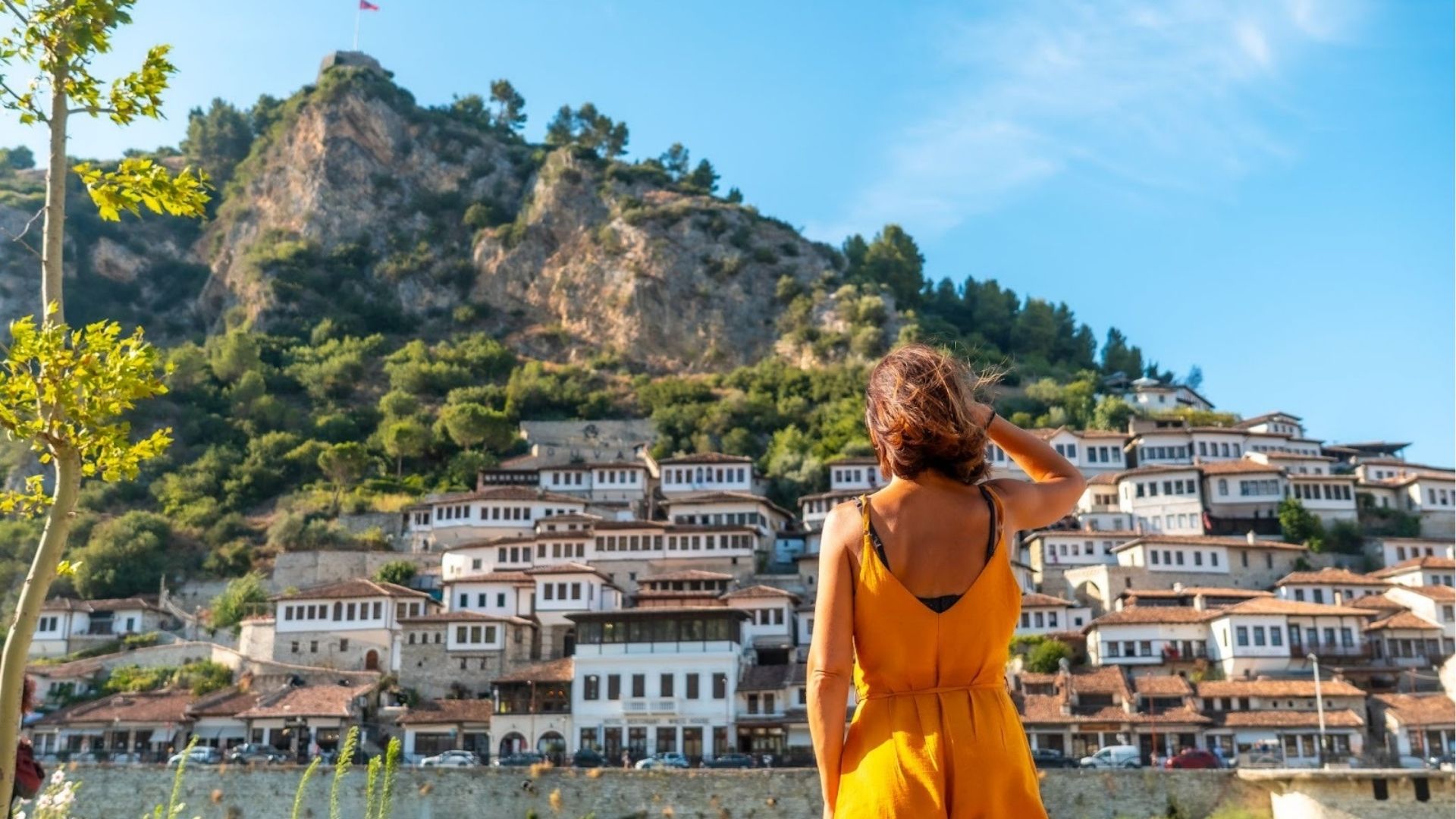
Albania is a land where the Adriatic meets the Alps, where quiet villages preserve centuries-old traditions, and where beaches and mountains share the same horizon. What begins as a journey of discovery often ends as a story of connection – with landscapes, history, and people who welcome every traveler as a guest.
Affordable, authentic, and astonishingly diverse, Albania is more than a stop on the map; it is a destination that lingers in memory long after the trip ends. For those ready to look beyond the familiar, Albania is waiting – full of beaches to rest, mountains to conquer, and secrets to uncover.
FAQs:
1. How can I get a discount on Voye Global eSIM plans?
You can apply the code VOYE15 at checkout to enjoy a 15% discount on your Albania eSIM purchase.
2. What is the best time of year to visit Albania?
Late spring (May-June) and early autumn (September-October) offer warm weather, fewer crowds, and affordable prices.
3. Why should I choose Voye Global for Albania travel connectivity?
Voye Global offers seamless coverage across Albania, ensuring instant data access from the moment you arrive without roaming charges.
4. Are Albania’s beaches suitable for families?
Yes, beaches like Ksamil and Borsh are calm, family-friendly, and offer shallow waters perfect for children.
5. How quickly can I activate a Voye Global eSIM in Albania?
Activation is instant – you can install the eSIM before leaving home and connect as soon as you land.
6. What are some must-try traditional Albanian dishes?
Don’t miss tave kosi (baked lamb with yogurt), byrek (flaky pastry filled with cheese or meat), and fresh seafood along the coast.
7. Can I use the VOYE15 discount code for multiple trips?
Yes, the VOYE15 code can be redeemed multiple times, making it a valuable option for frequent travelers.
8. Is Albania safe for solo travelers?
Albania is considered very safe. Locals are welcoming, and crime levels are low compared to many European destinations.

Seamless Mobile Data Everywhere
